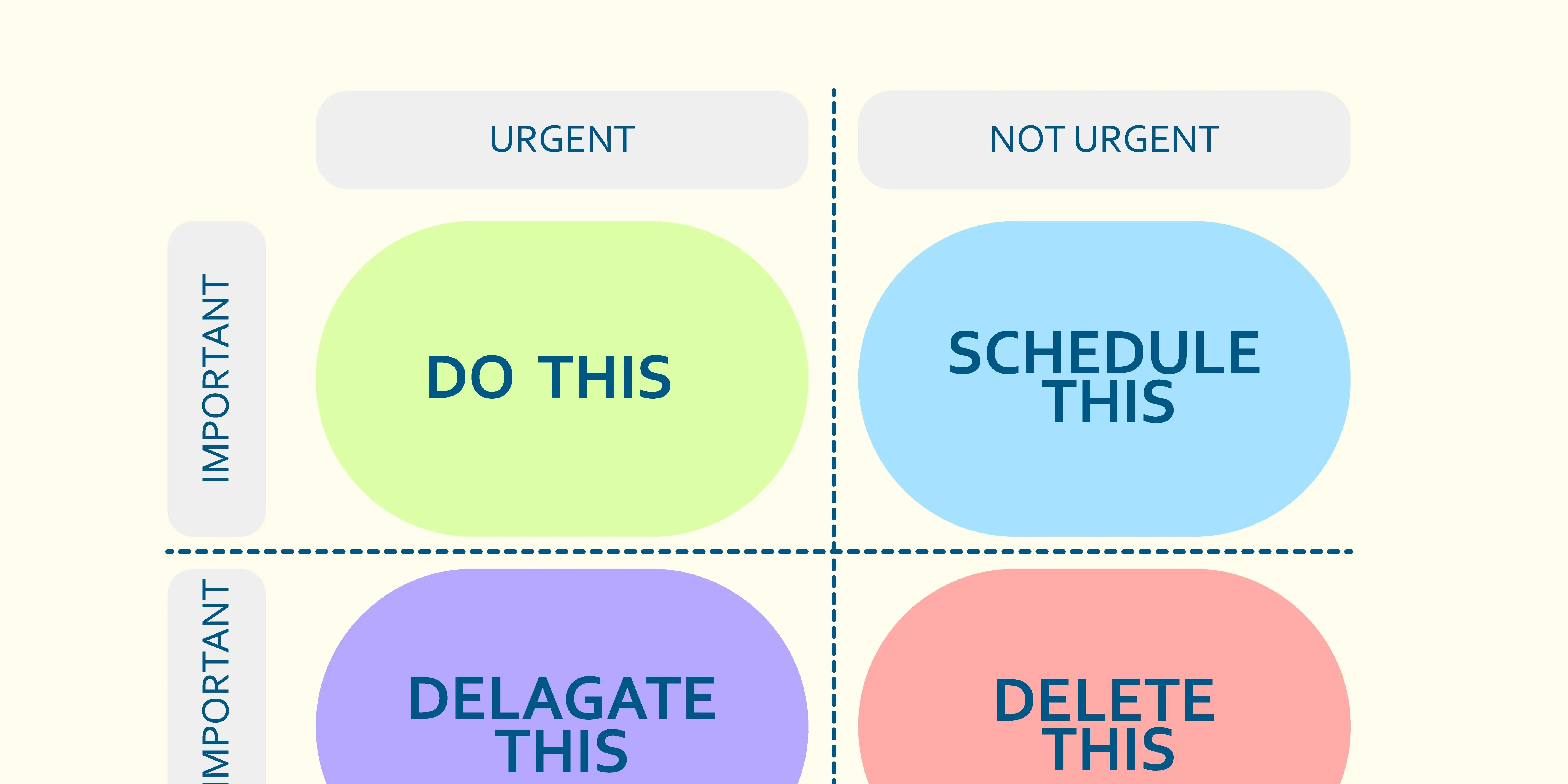Breaking Bad Habits: Psychology-Backed Techniques That Work
Have you ever caught yourself scrolling through social media, mindlessly refreshing emails, or suddenly needing to reorganize your desk—right when you're supposed to start a critical task? Procrastination sneaks into our workflow in subtle yet incredibly distracting ways. It not only delays important tasks but burdens us with guilt, anxiety, and frustration. If you find yourself frequently caught in procrastination cycles, you're certainly not alone. In fact, about 88% of people admit they procrastinate for at least an hour each day—shocking, isn't it?
But here's the good news: procrastination isn't an unconquerable enemy. There are scientifically backed methods and practical tips to not only manage procrastination but beat it effectively. In this post, we'll dive into 12 proven, actionable strategies to overcome procrastination seamlessly. Whether you're a student, entrepreneur, or busy professional, these strategies can fundamentally enhance your time management skills and overall productivity.
Ready to reclaim control over your time and improve productivity once and for all? Let's dive right in!
1. Adopt the Two-Minute Rule
Ever heard of the popular "two-minute rule," coined by productivity expert David Allen in his book Getting Things Done? The idea is simple: if a task takes less than two minutes, do it immediately rather than postpone it. Applying this method prevents small tasks from piling up and becoming overwhelming later.
Here's a practical way: if you see an unread email that requires only a quick reply, handle it now instead of flagging it for later. Similarly, if you notice clutter that only takes a few moments to tidy, do it immediately. These tiny actions help maintain workflow momentum, minimizing procrastination.
For example, Mary, a marketing freelancer, always struggled with delayed email responses. Once she incorporated the two-minute rule into her routine, she found her inbox managed smoothly, and her productivity soared.
2. Break Big Tasks into Micro-Steps
One common reason people procrastinate is feeling overwhelmed by looming, complex projects. By breaking big tasks into smaller, manageable steps, you not only clarify the roadmap but reduce mental resistance toward getting started.
Begin with a simple brain-dump. Write down everything required for your big project, then convert those into actionable mini-tasks. These bite-sized tasks remove intimidation and provide positive reinforcement each time you check one off your list.
For example, if you're writing an ebook, don't write "finish ebook" as the task. Break it down into smaller chunks such as "outline chapters," "write introduction," or "edit first draft." It sounds trivial, but psychologist Dr. Timothy Pychyl emphasizes that breaking tasks into subtasks significantly reduces procrastination tendencies by offering quicker reinforcement with small wins.
3. Implement the Pomodoro Technique
The Pomodoro Technique, developed by Francesco Cirillo, applies strategic time breaks to boost productivity and eliminate procrastination. Here's the concept: set a timer for 25 minutes of focused work, followed by a 5-minute relaxing break. After four consecutive intervals, reward yourself with a longer break (15–30 minutes).
Practically, this ensures you don't burn out quickly and keeps motivation levels consistently up. During the short breaks, perform activities unrelated to work—stretch, grab water, or meditate. This technique maintains cognitive freshness, enhancing your overall focus and productivity.
Josh, a young entrepreneur, frequently battled distractions. Applying the Pomodoro Technique, he noticed his workflow improved drastically. It allowed him to maintain sharp mental focus throughout busy days while reducing stress levels significantly.
4. Time Blocking for Enhanced Focus
Time blocking is an effective planning technique that allocates specific time slots for distinct tasks each day. Instead of scheduling random tasks throughout the day, group similar activities together and dedicate deep, undisturbed periods to them. This method helps eliminate "task-switching," which research shows can decrease productivity by up to 40%.
For example, create blocks like "content creation" from 10 AM–12 PM, "meetings" from 2–4 PM, or "email responses" at set morning and afternoon intervals. Structuring your day this way avoids spontaneous distractions and nurtures an environment conducive to deep work.
Cal Newport, author of Deep Work, extensively champions the practice, noting time blocking dramatically boosts productivity by clearly defining work boundaries.
5. Apply the Eisenhower Matrix
Struggling to prioritize your tasks? The Eisenhower Matrix, popularized by former U.S. President Dwight D. Eisenhower, involves categorizing tasks into four quadrants based on urgency and importance:
- Urgent and important: Do immediately
- Important but not urgent: Schedule and plan
- Urgent but not important: Delegate
- Neither urgent nor important: Eliminate
This clarity empowers you to avoid procrastination by focusing energy on impactful activities and avoiding time-wasters.
For example, Sarah, an HR manager, found herself overwhelmed until she began precisely categorizing professional demands. She swiftly identified tasks essential to her role and delegated or completely eliminated many unnecessary chores. This approach improved her productivity immensely and reduced procrastination significantly.
6. Embrace Accountability Partnerships
Having an accountability partner means involving someone who checks on your progress regularly. Conversations or meetings about goals and progress push you past excuses and procrastination. An accountability partnership strengthens commitment, boosts motivation, and helps you achieve more consistent progress.
Suppose you're training for a marathon but struggle getting out the door daily. Committing to a running partner who expects your attendance can prevent delaying or missing runs. Harvard researchers found individuals who publicly committed goals with regular accountability check-ins had a 65% higher success rate compared to those who went it alone.
7. Set Reward-Based Incentives
Human psychology responds positively to rewards, sparking dopamine bursts that motivate us toward continued action. Incorporate intrinsic or extrinsic rewards when you meet targets or complete tasks to combat procrastination effectively.
Tasks you usually dread become more appealing when associated with a pleasure reward afterward—such as allowing yourself a movie night upon completing a challenging project. Intrinsic rewards might involve self-reflection, boosting self-esteem after completing daily tasks.
Mia, a college student, started rewarding herself with 15 minutes of gaming for every hour of focused studying. This reward-based approach not only dampened procrastination but boosted productivity significantly over time.
8. Minimize Digital Distractions
Social media, email popups, and instant messages significantly interrupt productivity. Take active steps like placing devices on silent, turning off app notifications, and creating distraction-free zones during work hours.
Behavioral research by Dr. Gloria Mark revealed that a digitally distracted person can take up to 23 minutes to regain optimal productivity levels. Simply closing unnecessary tabs or apps during deep work sessions significantly decreases procrastination.
9. Practice Mindfulness and Meditation
Mindfulness meditation practices enhance cognitive control and emotional regulation, thereby reducing procrastination triggered by anxiety. A daily meditation practice—ten to fifteen minutes—is sufficient for notable improvements, reducing stress and improving attention span.
Corporate CEO Jeff Weiner attributes some of his leadership success to adopting workplace mindfulness meditation. Reports suggest workplaces practicing regular mindfulness programs experience sharper focus, more effective decision-making, and reduced instances of chronic procrastination.
10. Set Realistic Deadlines
Unrealistic deadlines encourage procrastination because they often lead to overwhelm and anxiety. Set realistic yet challenging deadlines for tasks and projects. Consider building buffer time to manage unexpected complications, ensuring tasks remain achievable without overloading yourself.
11. Regularly Review Your Goals
Regularly revisiting your goals aligns every task with its broader importance. Schedule weekly or monthly reviews to measure progress, adjust methods, and recalibrate priorities. Ongoing reflection supports sustained motivation and prevents losing sight of long-term objectives.
12. Maintain a Healthy Work-Life Balance
A balanced life—plenty of rest, regular physical activity, time for hobbies and relationships—reduces burnout tendencies associated with procrastination. Prioritizing holistic wellbeing inevitably feeds back into greater workplace productivity.
Conclusion
Overcoming procrastination doesn't happen overnight. However, by following these proven tips—from time blocking methods and accountability partnerships to rewarding yourself for productivity gains—you'll gradually notice significant improvement in managing your time effectively. For more effective results, don't overlook powerful productivity apps designed specifically to combat procrastination and boost your time management skills.
Ready to beat procrastination for good? Try the proven productivity app today.
#StopProcrastinating #TimeManagement #ProductivityTips #FocusBetter #BeatProcrastination #WorkSmarter #EfficiencyStrategies
You May Also Like
These Related Stories
Breaking Bad Habits: 7 Psychology-Backed Techniques That Work

Batch Processing: Handling Similar Tasks Together

No Comments Yet
Let us know what you think